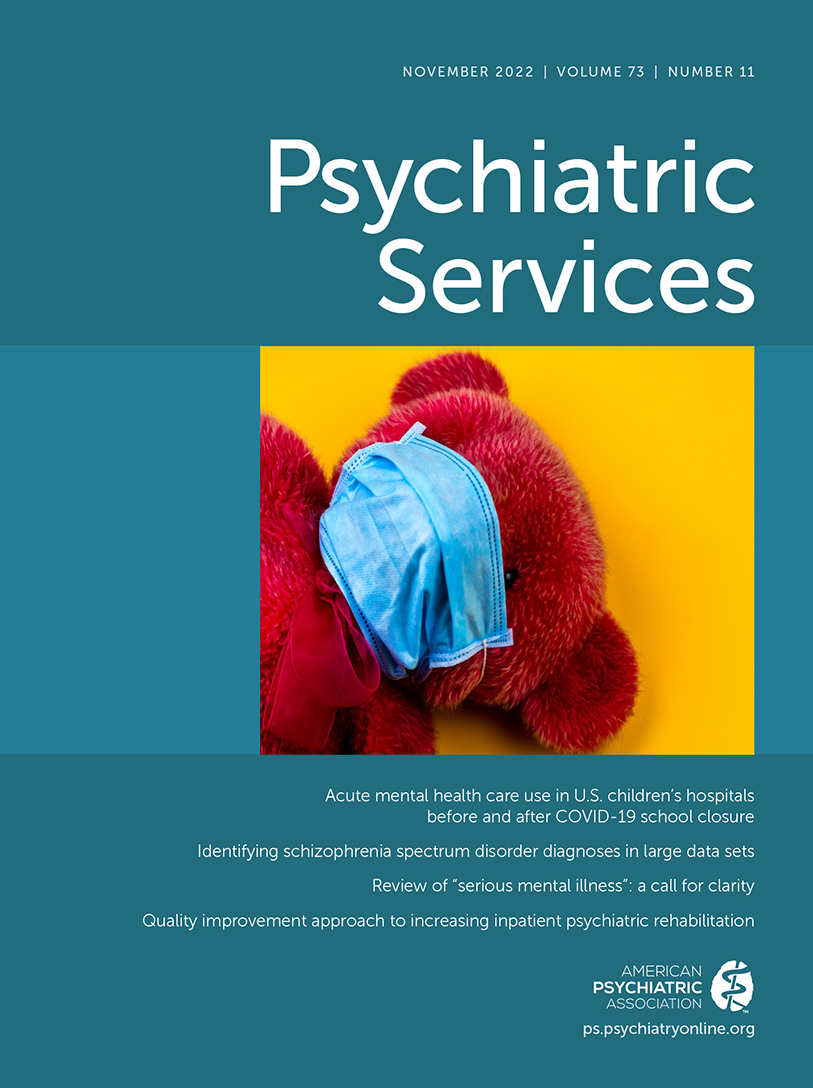Reliability of the Term “Serious Mental Illness”: A Systematic Review
Abstract
Objective:
The term “serious mental illness” (SMI) is widely used across research, practice, and policy settings. However, there is no consistent operational definition, and its reliability has not been systematically evaluated. The purpose of this review was to provide a comprehensive qualitative content analysis of “SMI” empirical research, including study and sample characteristics and SMI operational definitions. These data can provide important considerations for how stakeholders conceptualize SMI.
Methods:
Systematic review of PsycInfo, PsycArticles, and PubMed databases from January 1, 2015, to December 31, 2019, identified 788 original empirical studies that characterized the sample as having “SMI.”
Results:
Descriptive content analysis indicated that most studies (85%) provided no operational definition for SMI. Only 15% defined the term, and an additional 26% provided examples of SMI that included only psychiatric diagnostic categories (e.g., SMI, such as schizophrenia). Of the 327 studies that provided any description of SMI, variability was noted regarding whether criteria included any mental health diagnosis (N=31) or only specified diagnoses (N=289), functional impairment (N=73), or any specified duration of symptoms (N=39). Across all studies that characterized samples as having SMI, substantial variability was noted regarding included diagnostic classifications.
Conclusions:
Referencing “SMI” is second nature for many stakeholders. Findings suggest that evidence-based practice and policy efforts should weigh the level of research support indicating that the construct and the term “SMI” lacks generalizability. Researchers and stakeholders are encouraged to develop precise and agreed-upon diagnostic language in their efforts to support and advocate for people with mental illnesses.



